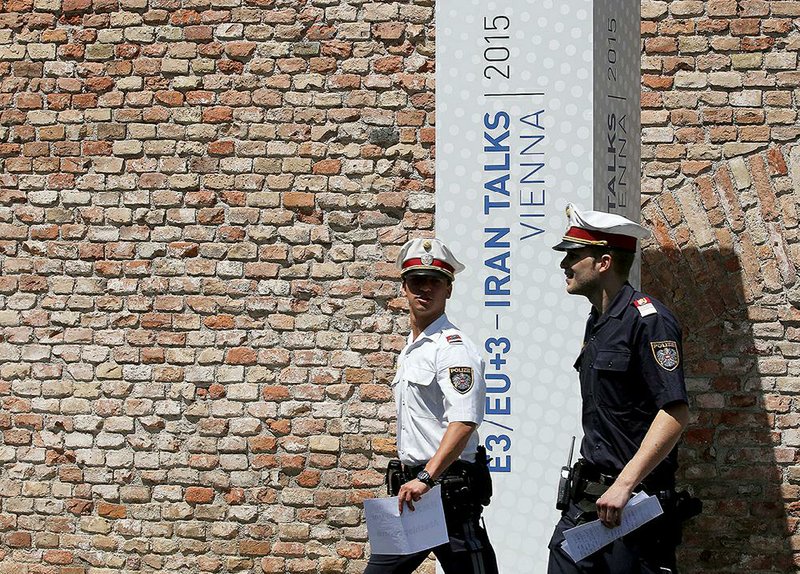VIENNA -- As negotiators at Iran nuclear talks focused on a Tuesday deadline to reach a deal, a senior Iranian official spoke Friday of differences not only between Tehran and the six other countries it is bargaining with but also internal differences among the six.
Deputy Foreign Minister Abbas Araghchi, Iran's top negotiator, spoke as Iranian Foreign Minister Mohammad Javad Zarif, U.S. Secretary of State John Kerry and French Foreign Minister Laurent Fabius prepared to join the talks.
The three were expected at the talks by today, with their counterparts from Russia, Britain and Germany and a deputy foreign minister from China also planning to participate over the coming days.
While Iran and the six countries agreed in April on the outlines of a deal that would crimp Tehran's nuclear activities for at least 10 years in return for sanctions relief for Tehran, negotiators are finding it difficult to fine-tune which sanctions should be lifted when, how open Iran must be to outside monitoring to make sure it complies with its obligations, and other details.
Araghchi, in comments carried by Iran's IRNA news agency, said that "on the whole, we are making headway," but progress was slow and hard.
Complicating issues, said Araghchi, was the fact that the six nations Iran is negotiating with also differ in approach "in certain topics ... which may not be harmonized easily." He did not offer details.
With Iran apparently backtracking on key points, the talks could go past the target date.
In a speech this week, Iran's supreme leader, Ayatollah Ali Khamenei, rejected a long-term freeze on nuclear research and insisted that Iran will only sign a deal if international sanctions are lifted first.
The preliminary deal calls for sanctions to be lifted gradually after an agreement is finalized.
Khamenei also repeated that military sites and Iranian nuclear scientists will be off-limits to United Nations experts, who would monitor Iranian compliance with any deal while trying to investigate suspicions that Tehran previously worked on atomic arms -- allegations Iran denies.
Kerry subsequently suggested Khamenei was speaking to a domestic audience appreciative of a hard-line stance and said that a deal was out of reach if Tehran also reneges on its commitments at the negotiating table.
Still, Khamenei's comments added to skepticism among some U.S. lawmakers who already believe President Barack Obama administration has grossly backslid on its positions in efforts to achieve an agreement.
In a letter to Kerry on Friday, U.S. Sen. Bob Menendez, D-N.J., a key critic of the negotiations, called Khamenei's demands "unacceptable,"
"If Iranian negotiators intend to adhere to the provisions demanded by Ayatollah Khamenei and Iran's parliament, I urge you to suspend the current negotiations with Iran," he said.
Araghchi said the negotiators were still aiming for a deal by Tuesday.
But the more important target date is July 9: If Congress receives a deal by then, it has 30 days to review it before Obama could suspend congressional sanctions.
But postponement beyond that would double the congressional review period to 60 days, giving both Iranian and U.S. opponents more time to work on undermining an agreement.
Information for this article was contributed by Nasser Karimi of The Associated Press.
A Section on 06/27/2015
